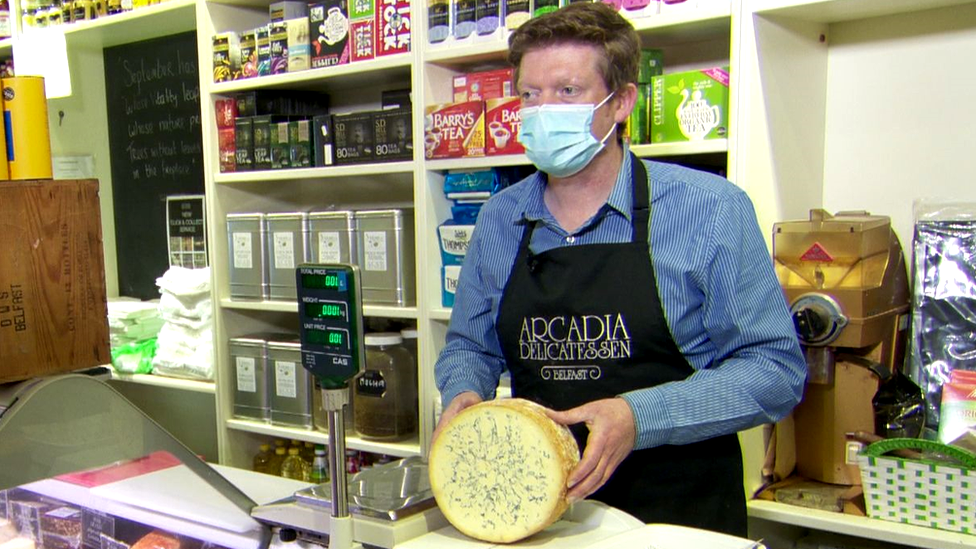Brexit paperwork 'a nightmare' for small NI traders
- Published
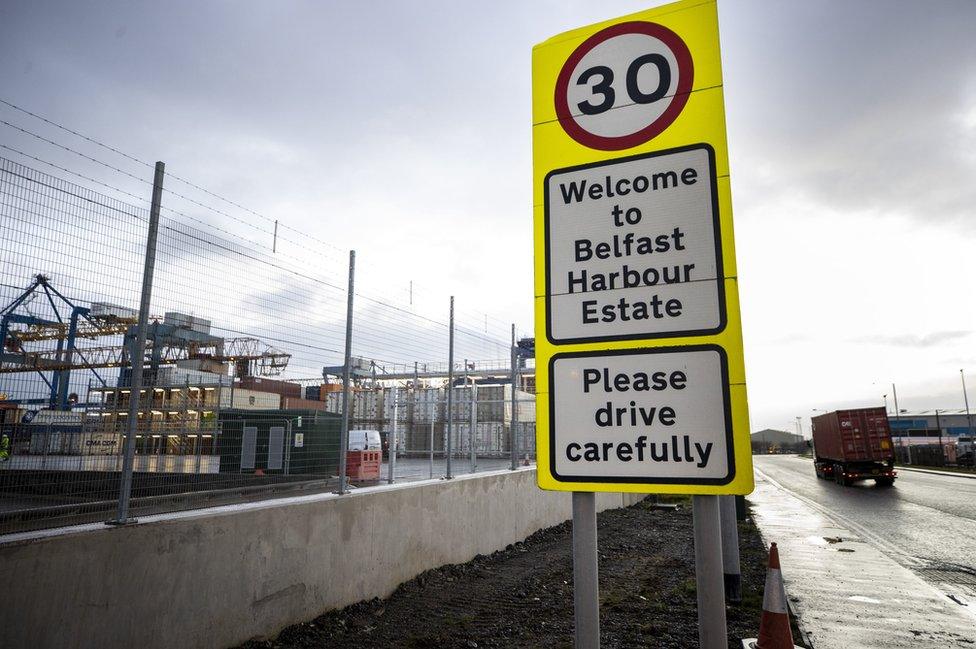
Confusion around the new Brexit rules for importing goods into Northern Ireland has caused a "nightmare", small business owners have said.
Since 1 January, goods coming from Great Britain are being checked and controlled at NI ports.
Alasdair King, a heating and plumbing contractor, said many suppliers "won't even entertain" making NI deliveries.
He warned that the difficulties sourcing parts has "a potential for loss of life".
Mr King said he had recently investigated three carbon monoxide-related incidents and feared over what could happen if parts cannot be supplied quickly to make repairs.
He said with more people staying indoors due to Covid-19 restrictions, tradespeople have "big concerns" about an increased usage of appliances that may have already needed inspections or repairs - and that there would be a need for "far bigger repairs" due to poor maintenance.
Mr King also said some of the larger suppliers, which he has used for years, have removed Northern Ireland as a delivery option.
Orders 'sitting in the twilight zone'
He described it as "steel door down, they don't want to know you".
The engineer said he applied several weeks ago for an EORI number, an identifier needed to complete customs declarations, and is still waiting on it being processed by HMRC.
"I have German suppliers with an office in England. If I order something from them they would have shipped overnight from Frankfurt. Now without the number everything's more difficult."
He added: "If hospitality opens and they need parts, instead of overnight it's going to be a week, two weeks.
"I have customers who have showrooms that were open before the lockdown and ordered industrial heaters that left the supplier pre-Christmas.
"Because of the lack of ferries and food shipping, they just got parked up somewhere and are now sitting in the twilight zone because they didn't have the right paperwork to get them onto the ferries before the 1st of January.
"When they will arrive, who knows."
'My suppliers don't want to supply me'
Caroline Dilworth, from the Omagh Craft Collective, said many suppliers in GB or the EU are no longer engaging with her due to additional paperwork.
"It's only been a week, but you can already taste it in the air," she said.
The jewellery artist, based near Irvinestown, told BBC News NI she was "very fearful that it will damage our economy in the long term".
"I paint and it's quite a niche market, but I am trying to expand into homewares and I'm finding people don't want to deal with me because they don't understand the paperwork."
She said there are 41 members in the collective and "most of us are experiencing problems".
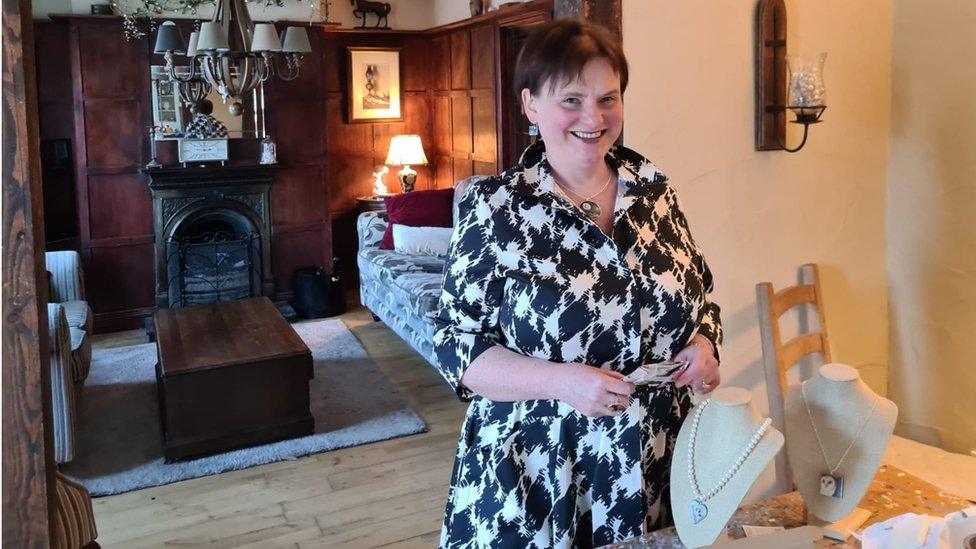
Caroline Dilsworth said there is not enough help to understand the new rules
"We have one guy who gets machined wood timber from Italy and the prices are increasing; the sellers don't want to sell.
"My suppliers don't want to supply me from England or Europe."
Ms Dilworth also said there was insufficient help and "there's no one available to tell us what is applicable to us".
"There are others in the craft collective who are experiencing problems getting things across the water, which is under the financial threshold. It's a bit ridiculous," she said.

Read more on Brexit's impact on Northern Ireland

Mark Brown, owner of Arcadia Deli in Belfast, said the next couple of weeks could be a "nightmare".
"All of a sudden this week there has been a problems getting stuff from Great Britain," he said.
On Thursday, some of the leading supermarkets operating in Northern Ireland told BBC News NI that the new Brexit arrangements had caused limits on the availability of some fresh produce, such as fruit and vegetables.
However, small food business owners are also feeling the pressure post-Brexit.
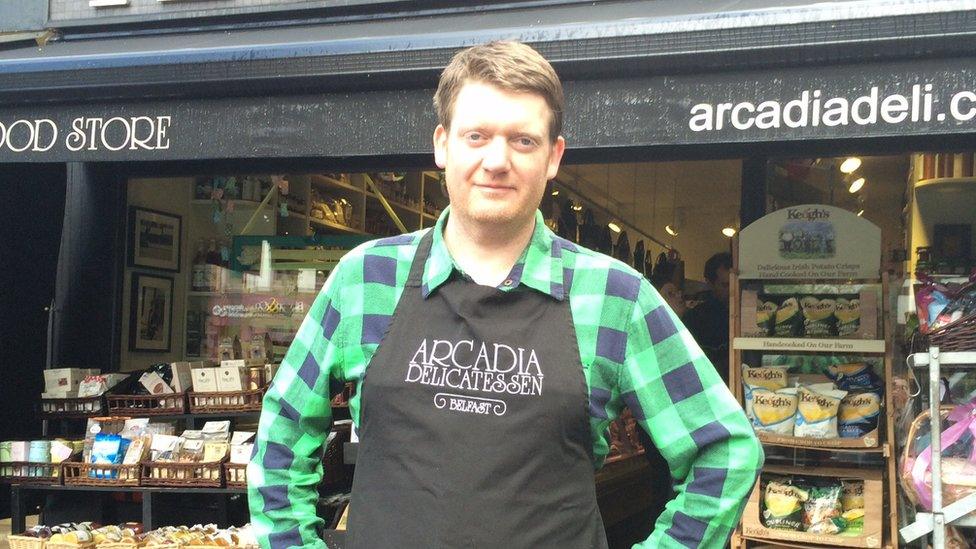
Mark Brown said fresh food was particularly impacted by delays in distribution
"The English companies are very reluctant to send anything to Northern Ireland right now, they're just saying no.
"Some things like olives I can get via Dublin now, but some English, Scottish or Welsh cheeses - there's no chance. Everybody is trying to find a way to get it back over again."
The family-run store has been based on the Lisburn Road in Belfast since 1933.
Mr Brown said he is confident it will survive, yet bemoaned that such businesses have "another hoop to jump through".
He also highlighted that the coronavirus pandemic has affected supply lines as the closure of restaurants has limited the import of some goods in bulk.
"I can understand English companies turning around and saying no because they don't know themselves what the situation is," he continued.
"If fresh products get stopped for a few days I'll be sending it back saying I can't use it."
Related topics
- Published7 January 2021
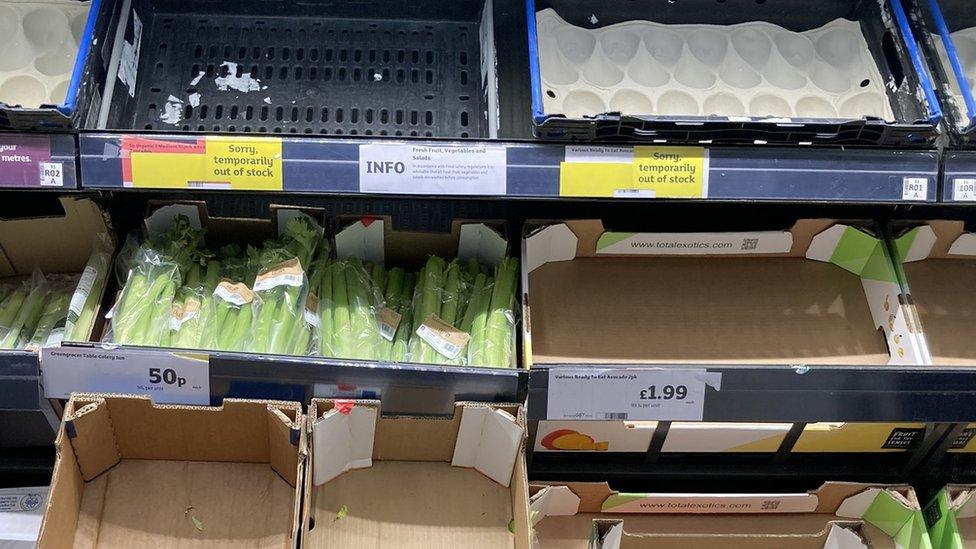
- Published6 January 2021
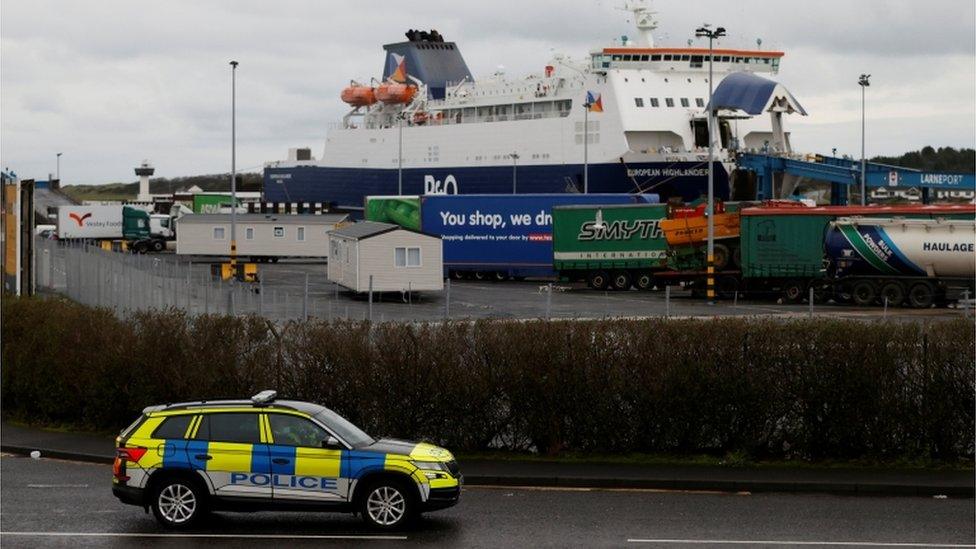
- Published13 October 2020
